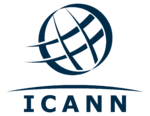ICANN 71
 | |
| Dates: | June 14-17, 2021 |
| Location: | The Hague, NL |
| Venue: | Virtual |
| Website: | https://71.schedule.icann.org/ |
ICANN 71 was a Policy Forum that was held from June 14 to June 17, 2021, virtually due to the Covid-19 pandemic. It was supposed to have taken place in The Hague, the Netherlands.
Meetings edit
Plenaries edit
Multistakeholder Model Evolution edit
The discussion mainly focused on:
- The pros and cons of encouraging or permitting adversarial interactions
- Ron Andruff proffered, "The consensus model needs to be revised from meeting the highest standard: Full Consensus, to the next level: General Consensus with dissenting opinions. That change would better inform the debates."
- Whether ICANN's role in Internet Governance should be streamlined
- Jorge Cancio said, "We stay in the weeds now" (as compared with work as recent as 2008) and argued that “ICANN should stay at the principle level, lean, and future proof.”
- The backlog of unimplemented policies, some of which are now out-of-date or conflict with current work
- Mason Cole worried "How big a danger to the model is unfinished work? The community has expectations regarding completing work...the SSR1 recommendations are nearly a decade old...This is like dragging weight around unnecessarily." Likewise, James Bladel said, "There is too much emphasis on process and not enough on relevance."
- How ICANN can better involve the Global South
- Claire Craig explained that ICANN must work with governments in developing nations, as they are the key access points. There are few if any capacity-building programs there, and the ICANN communities are too small; it's about striving toward equity, not equality. Jovan Kurbalija agreed, suggesting that the model should 1) embrace the public good aspect of ICANN (it's not just commercial); 2) that the pandemic made governments much stronger as it did tech; 3) ICANN should work with IGF to get more involved with politics because it’s trying to exist too far from the political center; and 4) ICANN needs to educate the general public to gain prominence via boundary spanners.
Impact of Regulatory Developments edit
The conversation was supposed to be general but time and again the questions drove the dialogue back to the GDPR. In its constellation, speakers addressed:
- To increase Cybersecurity in Europe, the Proposal for a Regulation on a Single Market For Digital Services (Digital Services Act), the EC proposals (to correct or)enhance the GDPR, Proposal for a Directive on measures for a high common level of cybersecurity across the Union (NIS2), SSAD, and how to go beyond ICANN's Contracted Party House
- For instance, Volker Greimann asked, "Why is NIS2 focussing on DNS as opposed to hosting, e.g, where the content is? Why are Hosters not subjected to the same requirements?"
- Paul Muchene and Jeff Neuman had a side discussion RDAP. Paul: doesn’t it already do what these proposals seek? Jeff: RDAP is a technical protocol. It is policy agnostic.”
- Alexander Seger representing the European Council, gave an update on the 2nd Additional Protocol to the Budapest Convention on Cybercrime on enhanced cooperation and disclosure of electronic evidence Budapest convention on cybercrime (the Budapest Convention), which has 66 member parties and concerns criminal law, not civil
Reputation Block Lists edit
Policy edit
GNSO edit
- GNSO: EPDP Phase 2A Update
- Two outstanding issues:
- legal vs. natural
- feasibility of unique contacts/anonymized emails
Contracted edit
RrSG edit
RySG edit
Non-Contracted edit
BC edit
ISPCPC edit
IPC edit
NCSG edit
ccNSO edit
ASO edit
Did not meet at ICANN 71.
Advice edit
GAC edit
ALAC edit
The key issues discussed in the ALAC meeting were: the prospects for SSAD; the U.S. Patent and Trademark Office v. Booking.com decision, the debate over whether domain names should be trademarked, and fears over the privatization of generic nouns; the potential policy implications of Verisign's US Patent 10,979,384; and questions over why ICANN's GDPR response is talking so long: is it due to technical or policy complications?